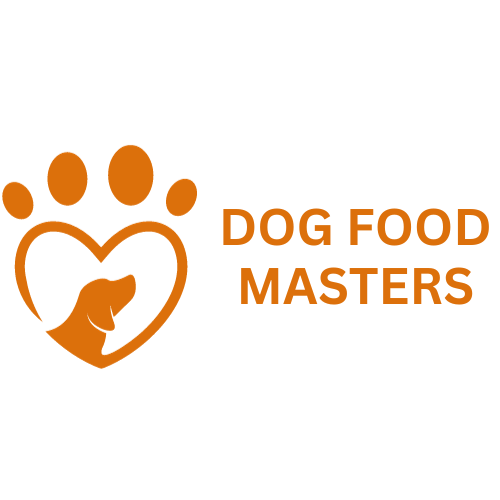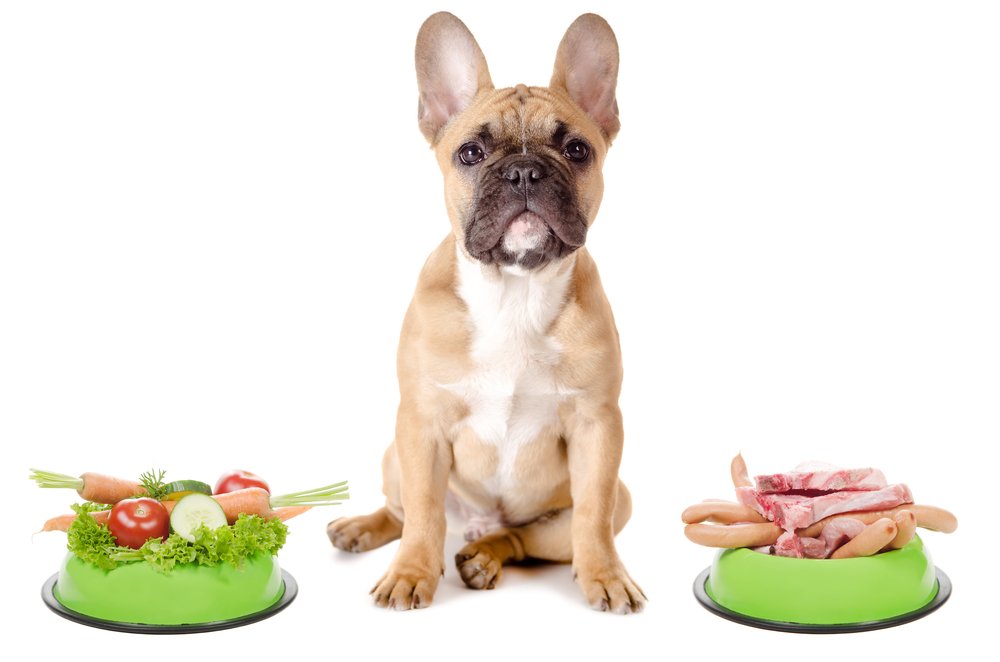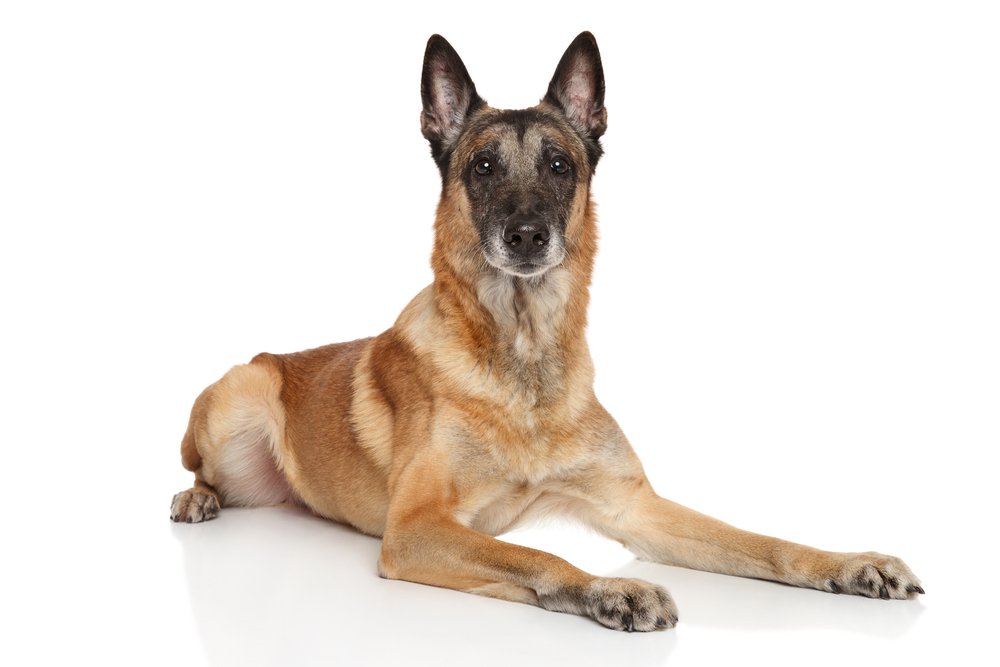As a dog owner, it can be alarming to see your dog suffering from constant itching, digestive issues, or skin problems. These symptoms might be the result of food allergies. Just like humans, dogs can develop allergies to certain ingredients in their food, which can lead to uncomfortable and even painful reactions. Understanding dog food allergies, their symptoms, and how to manage them can help improve your dog’s quality of life. In this guide, we’ll explore the common causes of dog food allergies, how to identify them, and the best steps to take to ensure your dog gets the nutrition they need without the allergic reactions. What Are Dog Food Allergies? Dog food allergies occur when a dog’s immune system reacts negatively to a particular ingredient in their food. Unlike food intolerance, which affects digestion, food allergies trigger an immune response, causing more noticeable symptoms such as skin irritation and itching. Dogs can develop allergies to proteins, grains, or additives in their food. The immune system mistakenly identifies these substances as harmful and attacks them, leading to inflammation and other allergic symptoms. Common Symptoms of Dog Food Allergies The symptoms of food allergies in dogs can vary, but the most common ones include: 1. Itchy Skin One of the primary symptoms of a dog food allergy is excessive itching, particularly around the face, paws, ears, and belly. Dogs with food allergies may scratch, lick, or bite at their skin, leading to redness and sores. 2. Ear Infections Recurrent ear infections are often linked to food allergies. If your dog is constantly shaking their head or scratching their ears, and the infections keep coming back despite treatment, it may be time to investigate their diet. 3. Gastrointestinal Issues Dogs with food allergies may experience digestive problems, including vomiting, diarrhea, or excessive gas. These issues are often a sign that your dog’s body is struggling to process a specific ingredient. 4. Hair Loss and Skin Problems Allergic reactions can cause hair loss, rashes, hives, or scabs on your dog’s skin. Chronic skin infections and dry, flaky skin are also common signs of food allergies. 5. Red, Irritated Eyes Dogs with food allergies may have red, watery, or swollen eyes. In some cases, the irritation can cause dogs to rub their eyes with their paws, making the problem worse. Common Causes of Dog Food Allergies Food allergies in dogs are often triggered by specific proteins or ingredients. Here are some of the most common causes: 1. Animal Proteins The most common cause of food allergies in dogs is proteins. This includes chicken, beef, lamb, and dairy. Some dogs develop sensitivities to specific types of animal proteins, which are often the primary ingredient in many commercial dog foods. 2. Grains While not as common as protein allergies, some dogs can be allergic to grains like wheat, corn, and soy. Grain-free diets have become popular for this reason, offering an alternative to dogs with grain sensitivities. 3. Additives and Preservatives Some dogs may react negatively to artificial additives, colors, or preservatives in their food. These chemicals can trigger allergic reactions, particularly in dogs with sensitive digestive systems. 4. Dairy Lactose intolerance or dairy allergies can cause gastrointestinal upset, including diarrhea and vomiting. Dairy products like cheese and milk can also lead to skin irritations in some dogs. Diagnosing Dog Food Allergies If you suspect your dog has a food allergy, it’s important to get a proper diagnosis. Here’s how to go about identifying and managing food allergies in dogs: 1. Consult Your Veterinarian Your veterinarian will help rule out other causes of the symptoms, such as environmental allergies, parasites, or infections. They may also suggest an elimination diet to determine the allergen. 2. Elimination Diet An elimination diet involves feeding your dog a limited-ingredient diet that contains proteins and carbohydrates they’ve never eaten before. This helps to isolate the allergen. Over time, ingredients are reintroduced one by one until the allergic reaction reappears, identifying the problematic ingredient. 3. Allergy Testing In some cases, your veterinarian may recommend allergy testing through blood tests or skin tests to pinpoint the specific allergens affecting your dog. This can be especially useful if the elimination diet doesn’t provide clear answers. How to Treat and Manage Dog Food Allergies Once the allergen has been identified, managing your dog’s food allergy becomes much easier. Here are some ways to help your dog live allergy-free: 1. Switch to Hypoallergenic Dog Food Hypoallergenic dog food is designed specifically for dogs with food allergies. These formulas typically contain limited ingredients, novel proteins (such as duck, rabbit, or venison), and are free from common allergens like grains or dairy. 2. Try a Homemade Diet For more control over your dog’s diet, consider preparing homemade dog food. This allows you to select the ingredients carefully and ensure that your dog is avoiding any allergens. Just be sure to consult your veterinarian or a pet nutritionist to create a balanced diet that meets all your dog’s nutritional needs. 3. Grain-Free or Limited-Ingredient Diets Grain-free and limited-ingredient diets can also help manage food allergies. Grain-free diets eliminate wheat, corn, and soy, which are common allergens, while limited-ingredient diets focus on simple formulas with fewer ingredients to reduce the risk of triggering an allergic reaction. 4. Introduce New Foods Slowly When trying new foods, introduce them gradually over several days. Start by mixing a small amount of the new food with your dog’s current food, increasing the proportion each day. This slow transition can help prevent digestive upset. 5. Monitor for Symptoms Even after switching your dog’s food, continue to monitor for any signs of allergic reactions. If symptoms persist, consult your veterinarian for further guidance. Conclusion: Giving Your Dog Allergy Relief Food allergies can be frustrating for both you and your dog, but with the right approach, you can find the right diet that keeps your dog healthy and symptom-free. Whether you choose hypoallergenic commercial food, a homemade diet, or a limited-ingredient option, ensuring your dog’s nutritional
Best Dog Food for French Bulldogs
Introduction With their adorable wrinkles, bat ears, and playful personalities, French Bulldogs steal hearts wherever they go. But beneath that irresistible exterior lies a breed with unique dietary needs. Understanding these needs is essential to ensuring your Frenchie lives a long, healthy, and happy life. Generic dog food won’t cut it! This guide will dive into the specifics of nourishing your Frenchie, from choosing the ideal puppy food to addressing common food allergies and ensuring a complete diet at every life stage. The Nutritional Needs of French Bulldogs French Bulldogs aren’t just miniature versions of other breeds. Their distinctive features come with specific dietary considerations: Brachycephalic Challenges: Frenchies often suffer from Brachycephalic Obstructive Airway Syndrome (BOAS). Their shortened faces cause difficulty breathing, which puts extra stress on the body. Proper diet plays a crucial role in maintaining a healthy weight and avoiding added difficulties when eating or digesting. Allergy-Prone: Allergies are prevalent in French Bulldogs, causing itchy skin, ear infections, and digestive distress. A tailored diet focusing on avoiding allergens and maintaining healthy gut function can provide immense relief. Macronutrient Needs: Like all dogs, Frenchies require the right balance of protein, fats, and carbohydrates for energy, body function, and a shiny coat. However, breed-specific factors need extra attention: High-Quality Protein: Lean protein supports muscle development and immune health. Ensure meat sources are top of the ingredient list. Moderated Fats: Fats are essential, but Frenchies are prone to obesity. Choosing foods with appropriate fat content for their life stage and activity level is vital. Digestible Carbohydrates: Select formulas with easy-to-digest carbs (from whole grains or limited-ingredient recipes) to minimize intestinal strain. Key Nutritional Notes: Vitamins and Minerals: Your Frenchie needs a range of vitamins and minerals critical for bone health, vision, and immune function. Food Size: Opt for food with bite-size kibble to accommodate French Bulldog jaws and reduce choking risk. Choosing the Right Food at Each Stage A French Bulldog’s nutritional needs evolve throughout their lifetime. It’s essential to select age-appropriate foods to support healthy development, manage weight, and address potential health challenges associated with each phase of life. The Growth Phase: Fueling Your Frenchie Puppy During their first year, French Bulldog puppies need a diet specifically formulated for growth and development. These crucial dietary requirements include: Higher Protein: Supports tissue development and proper muscle formation crucial for this breed. Calcium and Phosphorus: Look for precise levels to maintain healthy bone growth, as Frenchies can be prone to skeletal issues. DHA and EPA: Fatty acids that promote brain and visual development. Smaller Kibble Size: Accommodates smaller mouths and facilitates proper chewing. Adult Wellness: Optimizing the Prime Years As your Frenchie matures, transition them to an adult formula designed for maintenance. Key things to focus on for this stage: Allergy Management: If your Frenchie suffers from sensitivities, seek out limited-ingredient or hydrolyzed protein formulas. Weight Control: Many Frenchies have a tendency to gain weight. Opt for foods with moderate fat content and ingredients promoting fullness. Prebiotics & Probiotics: Supports healthy gut function for overall immune strength and digestion. Senior Support: Tailored Nutrition for Golden Years As your Frenchie ages, specific senior formulas or carefully chosen adult versions become increasingly important. Focus on: Increased Protein: Older dogs need more protein to combat muscle loss. Joint Support: Glucosamine and chondroitin help maintain mobility. L-Carnitine: Provides support for healthy weight management in less active seniors. Antioxidants & Fiber: Boost immunity and regulate digestion. Important Note: It’s always advisable to discuss food choices with your veterinarian, especially if your Frenchie has any health conditions or is a particularly picky eater. Top Food Picks for French Bulldogs Choosing the best food for your Frenchie might feel daunting, with such a vast array of options. Here’s a carefully selected collection of high-quality brands that meet the nutritional criteria French Bulldogs need, along with additional factors to consider: Important Note: These picks serve as a guide. Consider your dog’s age, activity, sensitivities, and your veterinarian’s guidance when making a final selection. Best Overall: Brand 1: (Highlight emphasis on breed-specific considerations within their formulas, high-quality ingredients, and if known for addressing Frenchie concerns). Brand 2: (Emphasize limited-ingredient recipes or novel protein options appealing for allergy-prone Frenchies). Budget-Friendly Options: Brand 3: (Highlight value without sacrificing quality in ingredients, suitable for healthy Frenchies who don’t have severe sensitivities). Brand 4: (Known for providing a solid balance of price and nutrients). Specialty Focus: Brand 5: (If a raw or fresh food brand with strong vet backing – emphasize nutritional completeness and safety standards). Brand 6: (Focus on grain-free formulas popular with Frenchie owners aiming to manage potential intolerances). Finding Your Frenchie’s Perfect Match Selecting the right food goes beyond choosing one off this list. Here are some key tips: Read Ingredient Labels: Avoid vague wording and look for real meat as the first ingredient. Steer clear of artificial fillers and by-products. Life Stage Match: Ensure it corresponds to your Frenchie’s age (puppy, adult, senior) for precise nutritional support. Ask Your Vet: They know your Frenchie’s individual health and can offer the most personalized guidance. Beyond the Bag While dry and wet commercial foods form the basis of most Frenchie diets, there are alternative options worth exploring. These choices often offer additional benefits but do require extra care or specialized knowledge. Fresh Food Diets Pre-portioned or subscription-based fresh food for dogs is increasing in popularity. Their benefits and considerations include: High Palatability: Often more appealing to picky eaters or pups recovering from health issues. Fresh Ingredients: Focus on whole foods providing highly digestible nutrients. Price and Storage: Usually require refrigeration and come with a higher price tag. Nutritional Balance: May need supplementation – always consult a vet when switching to primarily fresh food. Raw or Homemade Diets A growing trend among some owners, but one that requires great caution: Potential Benefits: Advocates promote better digestion, shinier coats, and allergy control. Risks: Nutrient imbalances, contamination with bacteria, and injuries when mishandling bones. Veterinary Oversight: Absolutely essential – a veterinary nutritionist must design and
Best Dog Foods for Akitas: Fueling Your Strong, Loyal Companion
Akitas are a powerful and majestic breed known for their loyalty, intelligence, and independent nature. Originally bred as hunting dogs in Japan, Akitas are large and muscular, which means they require high-quality nutrition to maintain their strength and health. Choosing the best food for your Akita is crucial to support their energy needs, joint health, and overall well-being. In this guide, we’ll explore the best dog foods for Akitas and what to look for to keep your loyal companion healthy and happy. Nutritional Needs of Akitas Before diving into specific food recommendations, it’s important to understand the unique nutritional requirements of Akitas: 1. Protein for Muscle Maintenance Akitas are large, muscular dogs that need plenty of high-quality animal-based protein to maintain muscle mass and support their active lifestyle. Look for dog foods where meat (like chicken, beef, or fish) is the first ingredient. 2. Healthy Fats for Energy and Coat Health Fats, particularly Omega-3 and Omega-6 fatty acids, are essential for an Akita’s skin and coat health. These fats also provide energy and help reduce inflammation, which is especially important for joint health in larger breeds. 3. Joint Support Due to their size, Akitas are prone to joint issues such as hip dysplasia and arthritis. Dog foods with glucosamine and chondroitin can help support joint health and reduce the risk of joint problems. 4. Moderate Carbohydrates Akitas don’t need a diet that’s high in carbohydrates, but they do need some complex carbs to provide slow-release energy. Ingredients like brown rice, sweet potatoes, and oats are ideal. 5. Limited Fillers Avoid dog foods with unnecessary fillers like corn, soy, and wheat, as these can cause allergies and digestive issues in some Akitas. Instead, opt for whole, natural ingredients. Top Dog Food Choices for Akitas Here are some of the best dog food options that meet the nutritional needs of Akitas: 1. Orijen Original Dog Food 2. Blue Buffalo Wilderness Large Breed Chicken Recipe 3. Wellness Core Large Breed 4. Nutro Ultra Large Breed Adult 5. Royal Canin Large Breed Adult Feeding Tips for Akitas 1. Age Matters Puppy Akitas need more calories and protein for growth, while adult and senior Akitas need balanced nutrition with a focus on joint support. Look for puppy-specific formulas for young Akitas and senior dog food for older ones. 2. Joint Health is Key As Akitas are prone to hip dysplasia, it’s crucial to choose a food with joint-supporting nutrients, especially as they age. 3. Portion Control Akitas can be prone to weight gain, especially as they get older. Make sure to feed them controlled portions and avoid free-feeding. 4. Regular Vet Visits Consult your veterinarian for specific dietary advice, especially if your Akita has unique health concerns like food allergies or sensitivities. Conclusion: Feed Your Akita Right for a Long, Happy Life Choosing the right food for your Akita ensures they stay healthy, strong, and full of energy. Whether you have an active young dog or a senior Akita who needs extra joint support, providing a diet rich in high-quality proteins, healthy fats, and joint-supporting nutrients will keep your furry friend at their best. Be sure to select a food tailored to their specific needs, and always consult your vet for personalized advice. With the right nutrition, your Akita will thrive for years to come!
Best Dog Food for Belgian Malinois: Keeping Your Active Dog Healthy
Belgian Malinois are known for their energy, agility, and loyalty. Whether they are working as service dogs, excelling in dog sports, or simply keeping you company at home, these high-energy dogs require a diet that meets their nutritional needs. Finding the best dog food for your Belgian Malinois is crucial to supporting their overall health, strength, and stamina. In this guide, we’ll explore the best food options for Belgian Malinois, what nutrients to look for, and how to choose a diet that will fuel your dog’s active lifestyle. What to Look for in Dog Food for Belgian Malinois Belgian Malinois are muscular, highly active dogs that require a well-balanced diet to maintain their energy levels and overall health. Here are the key factors to consider when choosing dog food for your Belgian Malinois: 1. High-Quality Protein Protein is the foundation of your Malinois’s diet, supporting muscle development, recovery, and overall strength. Look for dog food with a high-quality protein source like chicken, beef, lamb, or fish listed as the first ingredient. 2. Healthy Fats Fats are essential for providing energy and supporting brain and coat health. Healthy fat sources like chicken fat, fish oil, and flaxseed are excellent options, as they are rich in omega-3 and omega-6 fatty acids. 3. Complex Carbohydrates Since Belgian Malinois are so active, they need carbohydrates to fuel their energy needs. Opt for dog food that includes complex carbs like sweet potatoes, brown rice, or oatmeal, which provide long-lasting energy. 4. Vitamins and Minerals A well-rounded diet should include a variety of vitamins and minerals that support your dog’s immune system, bone health, and overall well-being. Look for dog food with a mix of vitamins (like A, C, and E), as well as minerals such as calcium and phosphorus. 5. Joint Support Given their active nature, Belgian Malinois are prone to joint issues as they age. Dog foods that contain glucosamine and chondroitin can help support joint health and mobility. Top Dog Food Recommendations for Belgian Malinois Here are some of the best dog food options that meet the nutritional needs of Belgian Malinois: 1. Orijen Original Grain-Free Dog Food Orijen is a premium dog food brand known for using high-quality, biologically appropriate ingredients. Their Original Grain-Free formula is packed with fresh, whole animal proteins like chicken, turkey, and fish, making it an excellent choice for active Belgian Malinois. It contains 38% protein, ensuring your dog’s muscles stay strong and lean. Key Benefits: 2. Blue Buffalo Wilderness High Protein Dog Food Blue Buffalo Wilderness offers a grain-free, high-protein diet that’s ideal for Belgian Malinois. The formula features deboned chicken as the first ingredient, alongside sweet potatoes for a healthy source of carbohydrates. The addition of omega-3 and omega-6 fatty acids helps promote a healthy coat and skin. Key Benefits: 3. Taste of the Wild High Prairie Canine Recipe Taste of the Wild’s High Prairie formula is another excellent option for Belgian Malinois, featuring real buffalo as the main protein source. It’s grain-free and contains digestible carbohydrates like peas and sweet potatoes. The formula also includes antioxidants from fruits and vegetables, supporting your dog’s immune system. Key Benefits: 4. Royal Canin Breed Health Nutrition Malinois Adult Royal Canin offers a breed-specific formula tailored to the needs of Belgian Malinois. This food is designed to provide the right balance of protein, fats, and carbohydrates to maintain their energy levels and overall health. It also contains glucosamine and chondroitin to support joint health, which is especially important for this active breed. Key Benefits: 5. Wellness CORE RawRev High-Protein Dog Food Wellness CORE’s RawRev formula combines the benefits of high-protein kibble with freeze-dried raw pieces, offering your Belgian Malinois a diet packed with protein and natural ingredients. The inclusion of raw, whole ingredients provides an extra nutritional boost, while also supporting healthy digestion. Key Benefits: How to Transition Your Belgian Malinois to a New Food When introducing a new dog food to your Belgian Malinois, it’s important to transition gradually to avoid digestive upset. Follow these steps for a smooth transition: Special Considerations for Belgian Malinois Nutrition 1. Puppies vs. Adults Belgian Malinois puppies have different nutritional needs than adult dogs. They require higher levels of protein and fat to support their rapid growth and development. Be sure to choose a food specifically designed for large-breed puppies during their early stages. 2. Weight Management Given their high energy levels, some Belgian Malinois may be prone to weight gain if they are not exercised enough. Choosing a dog food with the right balance of protein and fat, alongside regular physical activity, will help keep them at a healthy weight. 3. Hydration Always ensure your dog has access to fresh water. Proper hydration is crucial for digestion, energy levels, and joint health, especially for an active breed like the Belgian Malinois. Conclusion: Fueling Your Belgian Malinois for an Active Life Choosing the right dog food for your Belgian Malinois is essential to keeping them healthy, energetic, and strong. Prioritize high-quality protein, healthy fats, and the right balance of nutrients to support their active lifestyle. Whether you go with a grain-free option or a breed-specific formula, providing your dog with the best nutrition will help them thrive for years to come.




